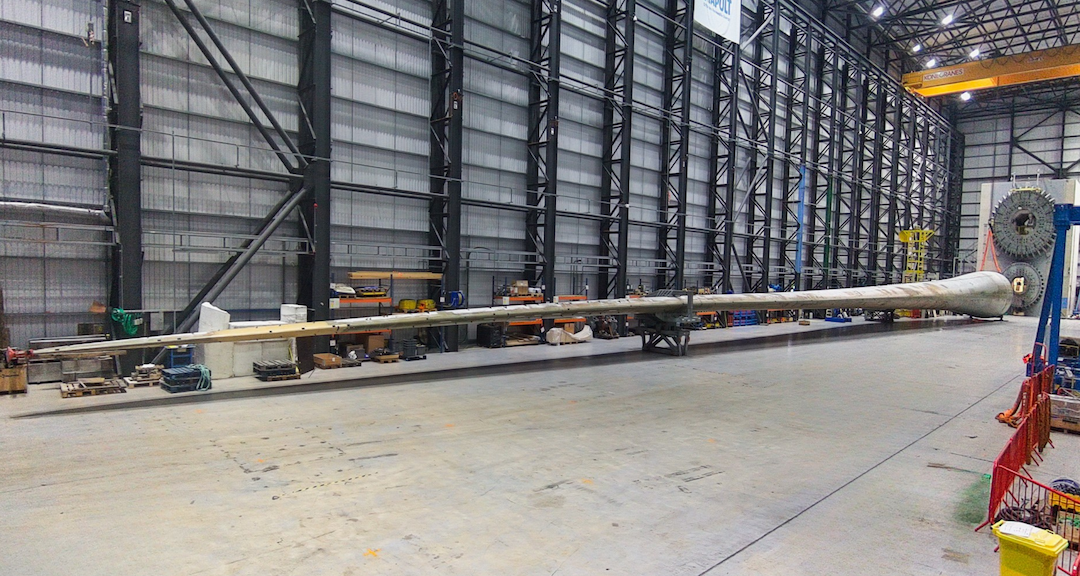The Offshore Renewable Energy (ORE) Catapult has signed an agreement with wind engineering specialist Bladena to test blade reinforcement technology designed to extend the operational life of offshore wind turbines.
With many of the first fleet of operational offshore wind turbines approaching the end of their planned lifespans, there is a need to accelerate the development of new technology which could potentially help extend the life of turbine blades.
The full-scale testing programme at ORE Catapult’s National Renewable Energy Centre in Blyth will use an 88-metre blade to carry out unique full-scale torsional load tests – the first of its kind conducted by ORE Catapult and understood to be an industry first. It will be used to show how Bladena’s reinforcement technology performs under the twisting forces it could experience out at sea.
ORE Catapult will be developing a bespoke test methodology for this programme, with the aim of better understanding how the new reinforcement technology developed by Bladena impacts how the blade responds. Findings could potentially guide industry-wide efforts to improve turbine reliability and reduce lifecycle costs.
Matthew Hadden, Chief Blade Engineer at ORE Catapult, said:
“We’re excited to be carrying out this testing with colleagues from Bladena, to examine how we can aid learning of how to better monitor turbine blades as they age through their operational life, with the hope of being able to inform the development of technological solutions across the sector.”
Bladena, part of RES, the world’s largest independent renewable company, is a specialist in wind turbine-blade engineering and lifecycle solutions.
Find Mølholt Jensen, CTO and Founder of Bladena, said:
“Testing our technology at ORE Catapult’s world-class facility is a significant milestone in extending turbine lifespans. Stronger blades mean lower costs and more power, and by improving how they withstand stress over time, we can ensure more reliable performance in offshore environments.”
This project builds on years of research by Bladena and partners, including the Technical University of Denmark (DTU) and the Danish Energy Technology Development and Demonstration Programme (EUDP). Their work revealed how even minor torsional loads can accelerate fatigue in composite materials and adhesive joints.
Testing begins in January 2026, with preparations already underway.
Further details on Bladena’s technology will be shared early next year.


